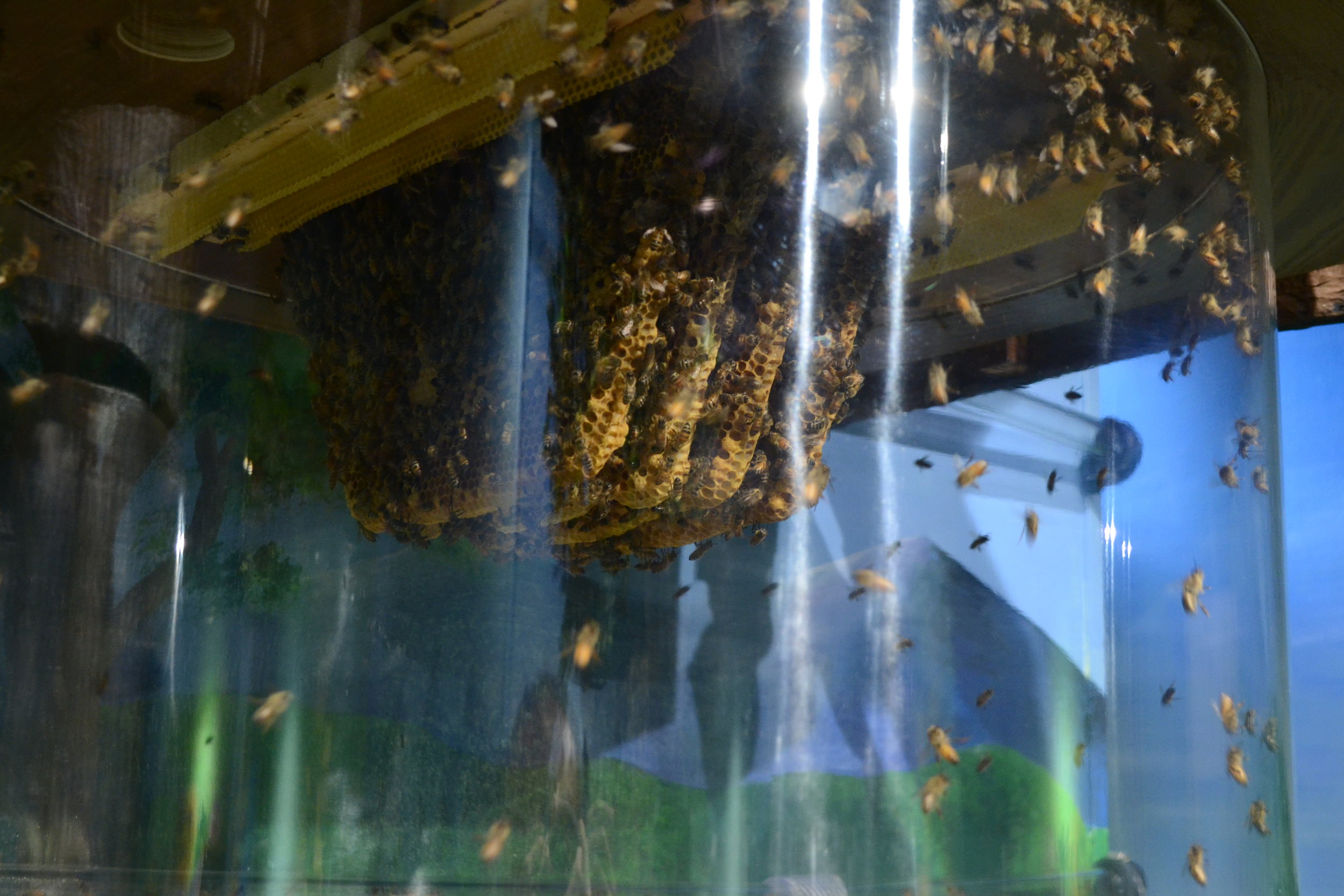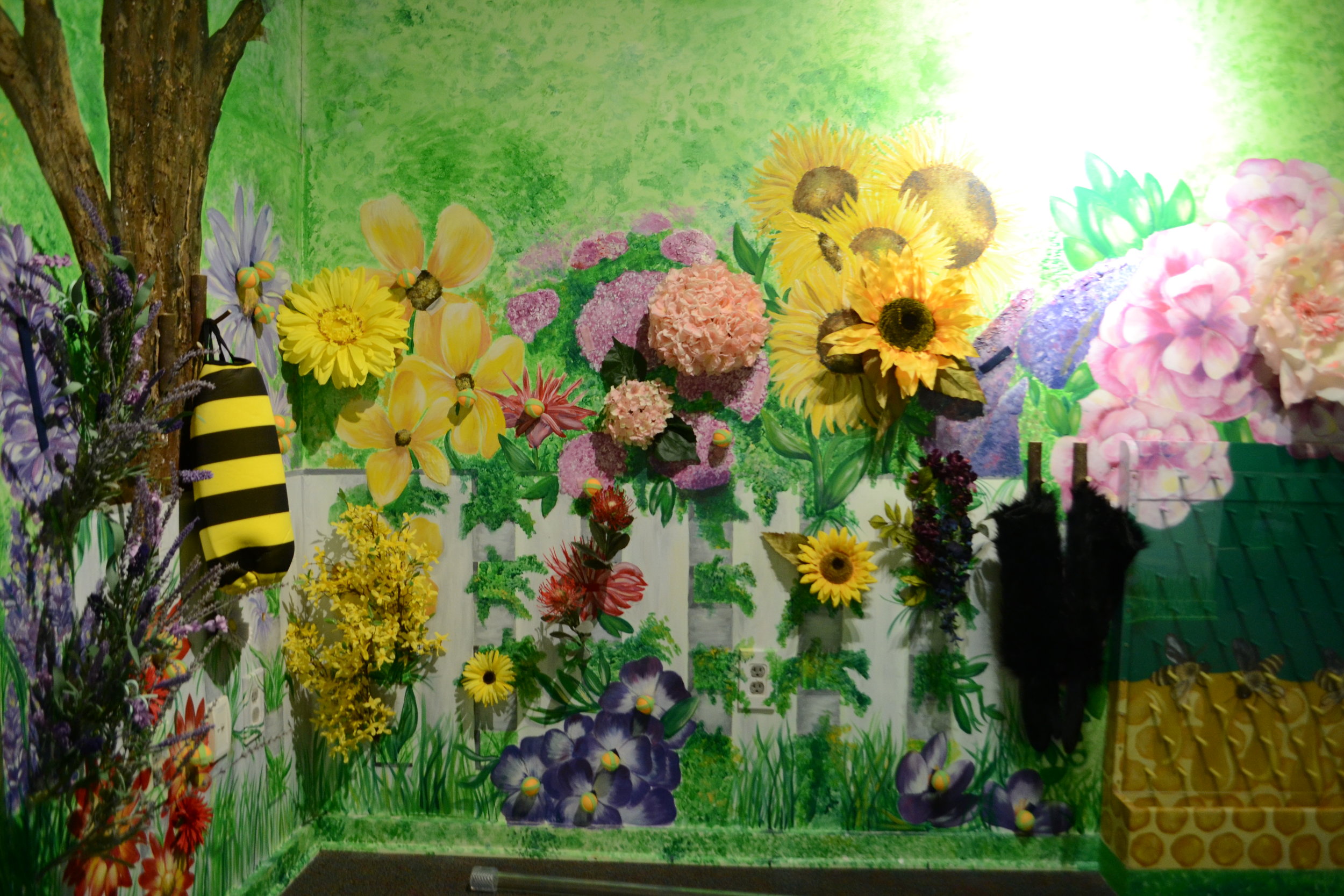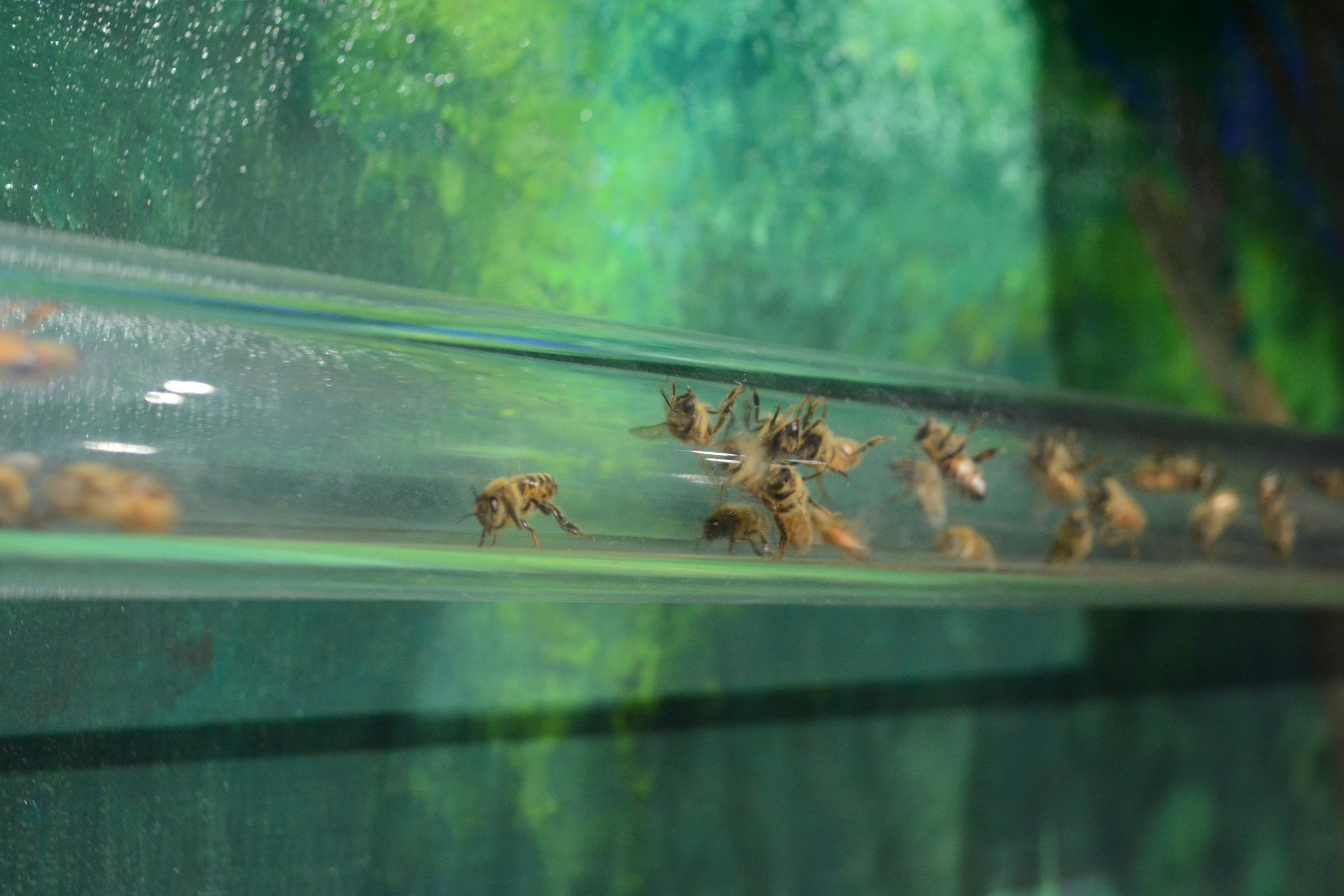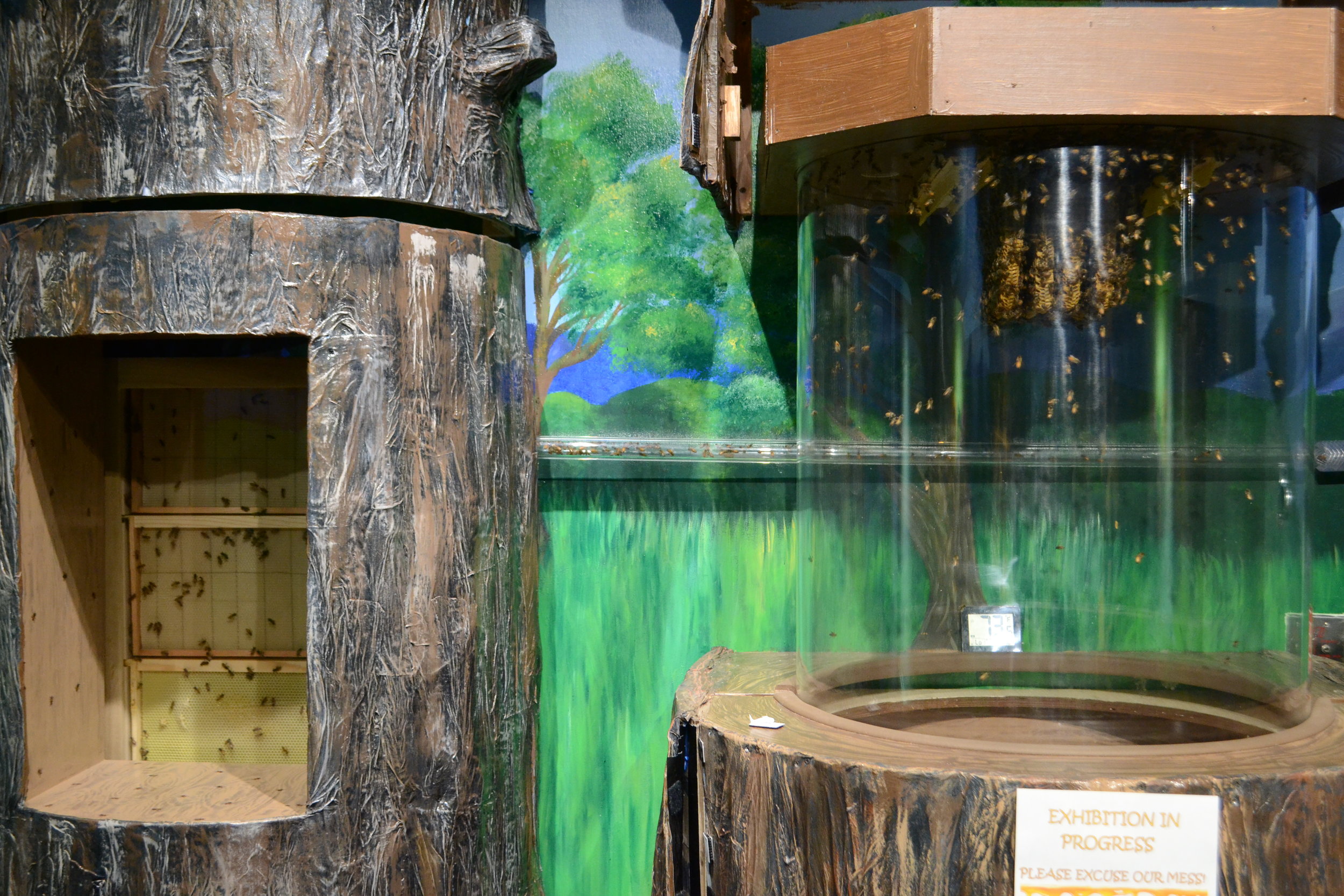Now Open!
Bee in the Know is made possible in part by support from:
Bank of Charlotte County
Forest Dental Center
Greater Lynchburg Community Foundation
Helen S. and Charles Patterson Foundation
James River Arts & Cultural District Program
Sam & Marion Golden Helping Hand Foundation
Westminster Canterbury
In the last decade, populations of bees have drastically fallen across much of the world. While no single cause has been identified, scientist are in agreement that climate change, toxic pesticides and infections of parasites are possible explanations for this unfortunate situation. Given that almost a third of food we consume is a direct result of insect pollination, once the bees are gone, plants that rely on bees for pollination will follow, and so will the animals that eat those plants, and so on.
Bee In the Know is an interactive and live exhibition that explores the critical importance of bees in our daily lives, and how we can learn much from these amazing insects. They have been around for more than 6 million years, and have existed in harmony with nature. While bees live naturally in the wild, the exhibition explores how beekeepers are playing an important role in preserving the bee population by nurturing and housing them in hives. The miracle of these amazing insects is their complete commitment to a team environment. The exhibition explores how bees work, hang out, and eat together, and their love of the hive and desire to be part of a large family, that is well run and female-oriented.
The exhibition’s focal point is 2 bee colonies housed in separate observation hives. Both observation hives are unique in their design, with the larger cylindrical hive being the first of its kind in a museum in the US. The hives will allow children and families to observe just how a bee colony works. The hive exhibits are complemented with educational games and learning play stations that allow children to dress up like bees and bee keepers, where they learn how bees help our plants by spreading pollen as they collect nutrients that they take to their hives for honey production. Visitors will also learn the importance of bee safety; why bees swarm; what humans do to attract unwanted bee visitor’s and how to properly respond when one comes buzzing a little too close.







